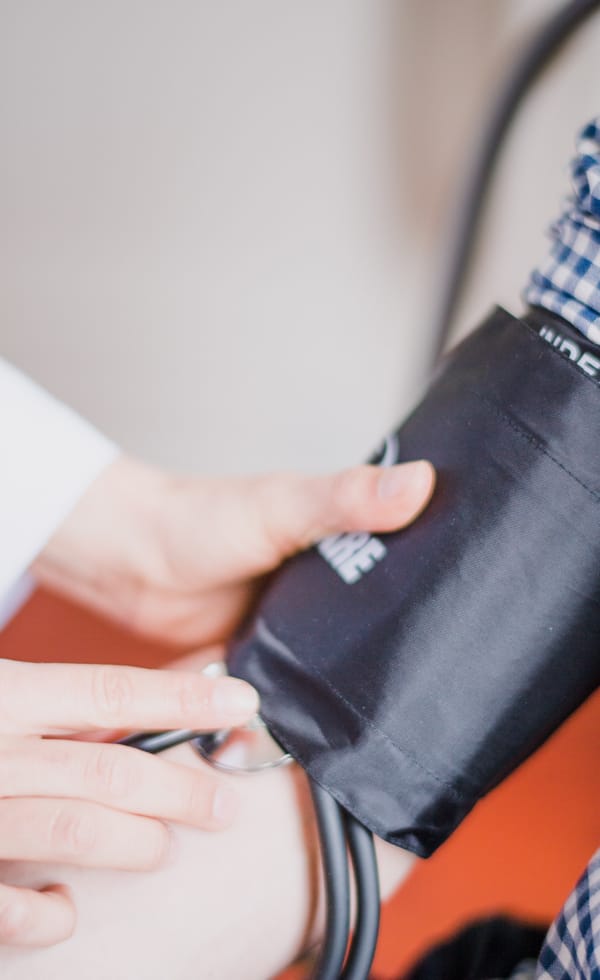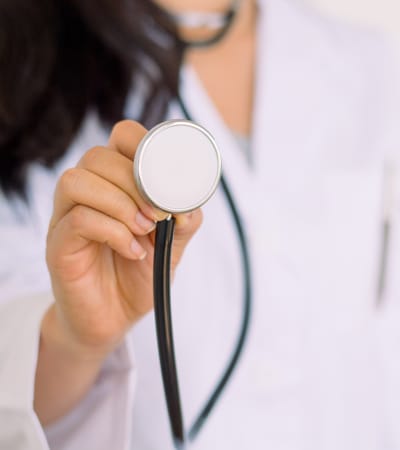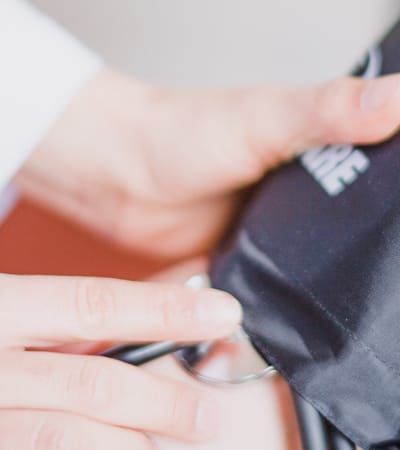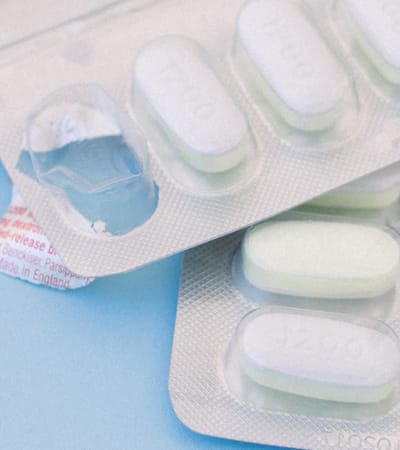Preparing for your surgery
Surgical arrival time
The pre-admission department will call you 1-2 weeks prior to your scheduled surgery. They will inform you of the surgical arrival time during this phone call.
During this phone call, you will receive instructions on when and where to arrive, when to stop food and fluids, and what medications can be taken on the day of surgery. If you do not receive this phone call within 3 days from your surgery, please call 810-732-8336
Important Things to do before surgery
Preoperative workup
Please be sure to complete any pre-surgical testing and/or evaluations as instructed (hospital and office).
Health
If you become ill or have any changes in your health status, prior to surgery, please contact us.
Quit smoking
Avoid smoking for at least 4-8 weeks prior to surgery. Please continue to avoid smoking after surgery as smoking can interfere with healing and increase your risk for infection. We realize that your tobacco use may be a long-time habit for you and stopping is no easy task. Please discuss with your primary care doctor the various ways that you can use to help you succeed at quitting tobacco use. Set a goal – set a quit date – inform your family and friends that you are going to quit!
If you are currently on narcotic pain medication
it is strongly recommended to slowly wean yourself as much as you can BEFORE your surgery. Over time, people who take pain medications can become more sensitive to pain. Reducing your narcotic dose prior to surgery will make it easier to control your pain after surgery. We realize some of you may have been on narcotics for an extended period of time and so cutting back may be challenging and so we encourage you to contact your primary care doctor for further assistance or your pain management doctor if they’re the ones currently providing you with pain medications.
If you take any of the following medications, please stop taking as instructed below:
2 weeks prior to surgery, stop all diet pills, vitamins and supplements
7 days prior to surgery, stop NSAIDS (Non-Steroidal Anti-Inflammatory Drugs). These include, but are not limited to, Motrin, Ibuprofen, Advil, Aleve, Naprosyn, Meloxicam (Mobic), Diclofenac (Voltaren), Etodolac (Lodine), Indomethacin (Indocin), and Celebrex
If you are taking blood thinners, including Aspirin, Eliquis, Xarelto, etc, the pre- admission office from hospital should contact you when you should stop those medications before surgery, if you have any questions or concerns, please contact our office at 810-732-8336.
2 days before surgery: Do not drink alcohol or use marijuana for at least 48 hours prior to surgery.
The Day Before Surgery
Night before surgery:
Brush your teeth and use mouthwash as instructed.
Take a shower and use cleansing scrub or Dial Antibacterial soap.
Do not eat or drink after midnight the night before surgery.
What to bring
- Insurance/Photo ID
- Advanced directives
- Wear comfortable/loose fitting clothes to the hospital. You can also wear these upon discharge.
- Toothbrush, toothpaste, hairbrush, deodorant.
- Cases for glasses, hearing aids, dentures. Please be sure to label with your name and medical record number.
- Specific toiletry items if you have special preferences
- You will mainly use hospital gowns but may want to have clean underwear and a comfortable outfit for your trip home.
- C-PAP (if you have one)
- List of all current medications and the times when you last took each dose. Please be sure to include the name, strength, and frequency of each medication.
- Do not bring any valuables and leave jewelry at home.
The Day Before Surgery
Night before surgery:
Brush your teeth and use mouthwash as instructed.
Take a shower and use cleansing scrub or Dial Antibacterial soap.
Do not eat or drink after midnight the night before surgery.
What to bring
- Insurance/Photo ID
- Advanced directives
- Wear comfortable/loose fitting clothes to the hospital. You can also wear these upon discharge.
- Toothbrush, toothpaste, hairbrush, deodorant.
- Cases for glasses, hearing aids, dentures. Please be sure to label with your name and medical record number.
- Specific toiletry items if you have special preferences
- You will mainly use hospital gowns but may want to have clean underwear and a comfortable outfit for your trip home.
- C-PAP (if you have one)
- List of all current medications and the times when you last took each dose. Please be sure to include the name, strength, and frequency of each medication.
- Do not bring any valuables and leave jewelry at home.
The Day of Surgery
The important thing to do on the Day of Surgery
- Take medications as instructed by your pre-anesthesia nurse with a small sip of water.
- Repeat oral hygiene: Brush your teeth and use mouthwash provided as instructed
- Repeat shower: Take a shower and use cleansing scrub provided as instructed
Before surgery
Check in
- Family members/caregivers are allowed to remain with you unless instructed by the hospital/surgery center.
- Following check-in, the process to prepare you for surgery will begin. You will begin meeting various members of your care team, including your surgeon, nurse practitioner, anesthesiologist, nurse anesthetist, operating room nurses, and others who are committed to helping you through your surgery and beyond to a successful recovery. You will become accustomed to being asked your name, birth date and confirmation of the surgery you are having as part of our patient safety procedures.
Preoperative Holding
During that time, the following will occur:
- Your health history and physical examination will be reviewed.
- Advanced directives will be noted.
- Your operative site will be prepped.
- Your anesthesiologist will review your health history and physical exam results and will discuss your options for anesthesia with you.
- An IV (intravenous) line will be started.
- An antibiotic will be given before surgery and continue afterward for as long as your surgeon feels it is necessary.
- The surgeon and nurse practitioner will review the procedure with you and mark the site of surgery on your body.
Operating Room and Post-Anesthesia Care Unit (PACU)
Family members/ caregivers will be given an update on your progress in the family waiting room.
Operating Room
You will be cared for by your surgeon, nurse practitioner, operating nurse, and circulating nurse in the operating room. The total time of the patient in the operating room differs from patient to patient depending on the complexity of the procedure. The surgeries may be short in duration, but some may last for several hours.
PACU (Recovery)
Following surgery, you will be transported to the Post-Anesthesia Care Unit (PACU) or recovery room. You may feel groggy from the anesthesia. You may spend from one to three hours in the PACU while you recover from the effects of anesthesia.
Your surgeon will meet with your family members/caregivers to provide a post-surgery recap.



If you are informed that you would be discharged home on the same day after surgery
The nurse from the recovery will give you the discharge instructions and prescriptions for pain medications or/and antibiotics.
You will be prescribed 3 days of pain medications when you discharge from the hospital. You should make an appointment with your pain management or primary care doctor to continue your pain management after surgery.
- Please ask your family/caregiver to give you a ride on the day of discharge, you should not drive for at least 2 weeks from surgery and while you are taking pain medication.
- Please make sure you understand how to care for your wound before you leave the hospital.
Important thing you should do while at the hospital/home

Pain management
- Your nurse will do pain assessment before giving your pain medication. It is important to provide this information and to let your team help to control your pain.
- You may receive different pain medications to help control your pain, such as Tylenol, muscle relaxer, nerve pain medication, or narcotic medication.
- It is very unlikely to give you “pain free” by taking pain medication, however, using pain medication enables you to perform the necessary activities.
- You can also use an ice pack to decrease the swelling from the incision site. Use 20 minutes and stop 20 minutes. Be careful while using ice, you might apply a towel between the ice pack and your incision.
- Bed resting is not good for pain control. In fact, longer bed rest may make your muscles stiff. We encourage walking to decrease your muscle stiffness.

Prevent Infection
- It is important to prevent infection, especially surgical site infection. Your nurse and nurse practitioner will instruct you how you take care of your incision site before you discharge from hospital.
- Wash your hands with soap and water or an alcohol-based hand rub often can also help you to prevent infection. If your family/caregivers come to visit you, please ask them to wash hands as well.
- If your family member/caregivers were sick or not feeling well, it is recommended that they should stay at home and avoid visiting you during recovery.
- Always clean your hands before and after caring for your wound. If your family members/caregivers will help to care for your wound, please ask them to clean hands before and after caring for your wound.
- If you have any symptoms of an infection, such as redness, pain at the surgery site, drainage, foul odor, or fever, notify our office immediately.

Prevent Blood Clots
- Your doctor and nurse will give you appropriate strategies to reduce the risk of blood clots, called deep vein thrombosis (DVT)- blood clots in the leg veins following surgery.
- Symptoms of DVT in the leg are swelling, redness, and pain in the affected leg. Symptoms of DVT in the lungs are difficulty breathing, chest pain, short of breath. If you have those symptoms, you should notify your nurse or notify your doctor/ call 911 when you are at home.

Prepare To Discharge
- You will transition from IV pain medication to oral pain medications before discharge. You will be prescribed for 3 days of pain medications when you discharge from the hospital. You should make an appointment with your pain management or primary care doctor to continue your pain management after surgery.
- Please ask your family/caregiver to give you a ride on the day of discharge, you should not drive for at least 2 weeks from surgery and while you are taking pain medication.
- Please make sure you understand how to care for your wound before you leave the hospital.
Post-Operative Instructions
Dr. Justin Schupbach
Dr. Justin Schupbach – ACL Reconstruction With Meniscus Repair
Dr. Justin Schupbach – ACL Reconstruction
Dr. Justin Schupbach – Knee Arthroscopy
Dr. Justin Schupbach – MCL Quadriceps Patellar Tendon Repair
Dr. Justin Schupbach – Shoulder Arthroplasty
Dr. Justin Schupbach – Shoulder Arthroscopy Without Repair
Dr. Justin Schupbach – Rotator Cuff Labral Repair Biceps Tenodesis Distal Clavicle Excision
Post-Operative Physical Therapy Protocols
AC Joint Reconstruction Post Op Rehab
ACL ALLOGRAFT reconstruction Post Op Rehab
ACL Reconstruction Post Op Rehab
ACL Revision Reconstruction Post op Rehab
Anterior Shoulder Instability Repair(Bankart repair) Post op Rehab
Biceps Tenodesis – Rehabilitation Protocol
MCL reconstruction Post Op Rehab
Meniscus Repair With or Without ACL reconstruction Post Op Rehab
MPFL Reconstruction Post Op Rehab
OCD Repair or OATs post op Rehab
Physical Therapy: Ac Joint And Coraco-Clavicular Ligament Reconstruction
Discharge Instructions




Attached are discharge instructions based on what surgery you’re having/had. Please follow these instructions for optimal care. Any questions, please call our office at 810-732-8336. Thank you!
